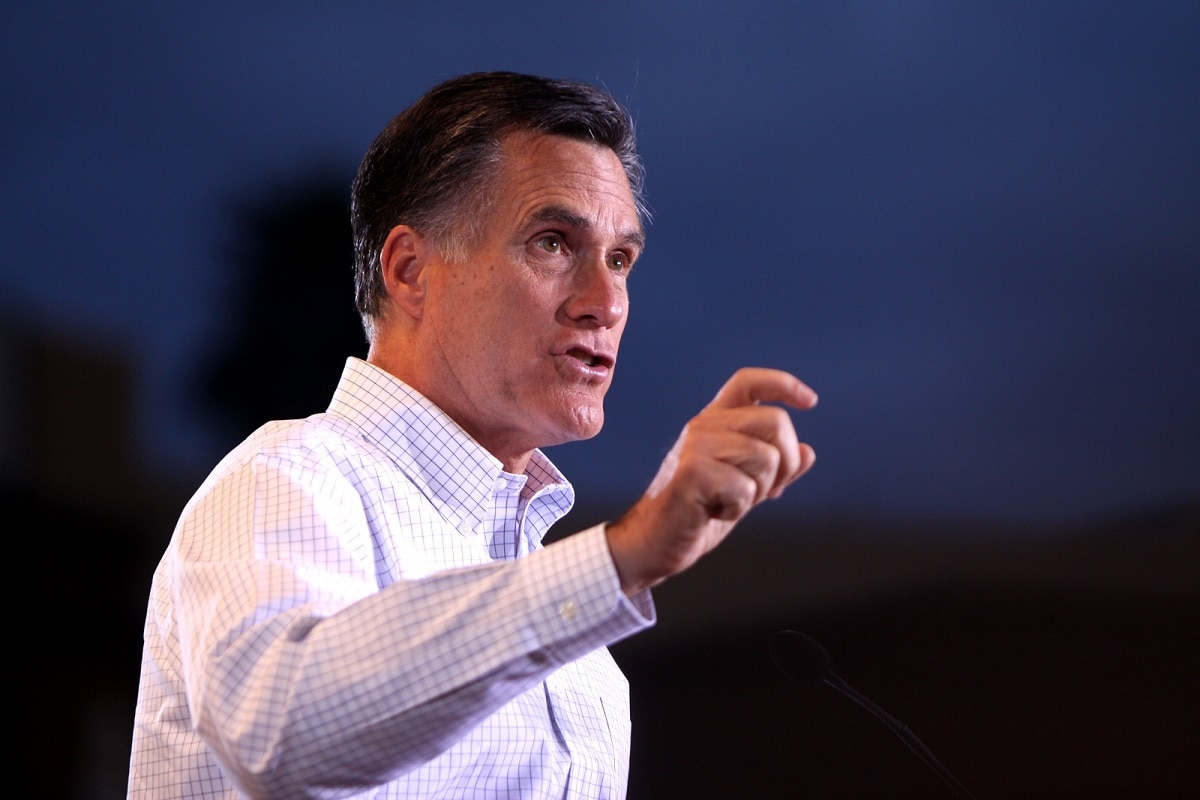The Committee for a Responsible Federal Budget estimates that the infrastructure bill will add about $400 billion to federal debt. The debt is already near an all‐time high, and further increases will raise the risks of triggering a financial and economic crisis.
Saturday, 18 Republican senators voted to proceed with the infrastructure bill, even though many of those same senators have been talking for years about the dangers of debt and overspending.
Here are comments about fiscal responsibility from the Senate websites of some of the 18 members:
Senator Mitt Romney (R-UT): “When I ran for the Senate, the number one issue in our state was massive overspending by the federal government, the deficits we have each year, and the debt.… I also have long favored a Balanced Budget Amendment that would help reduce the federal deficit and rein in spending.”
Senator Bill Cassidy (R-LA): “The national debt is more than $28 trillion. Fiscal responsibility is not an option, but a necessity to ensure the long term financial health of the United States. We must get federal spending under control by cutting wasteful, duplicative programs and ensuring taxpayer dollars are spent wisely.”
Senator Richard Burr (R-NC): “North Carolinians understand what ‘living within their budget’ means. This has not been the case in Washington, where annual deficits continue to mount. It is imperative that Washington follow the example of North Carolinians and begin to make tough choices and prioritize spending decisions.”
Senator Mike Crapo (R-ID): “Our nation faces many threats but perhaps the biggest is our growing, unsustainable national debt. Now exceeding $21 trillion, our debt is hurting our ability to prepare and respond to threats and crises, invest in infrastructure and other priorities, and grow jobs. During my visits to all 200 incorporated cities in Idaho, every meeting opened with a sober conversation about our debt and deficits. It is an urgent issue for many Idahoans who agree we must reduce our spending and balance the federal budget.”
Senator Lindsey Graham (R-SC): “Graham is also a leader in cutting spending, reforming entitlements, and getting government out of the way so businesses can create jobs. One national conservative organization called him a Taxpayer Hero who puts ‘the interests of the taxpayer ahead of politics by consistently voting to cut wasteful spending, reduce the tax burden, and make government more accountable to taxpayers.’”
Senator Chuck Grassley (R-IA): “In response to the pandemic, Congress understandably took bold actions to help individuals keep a roof over their head and small business keep their lights on. As a result, our national debt exploded. It now exceeds the entire output of our economy. As we enter as post‐pandemic world, we need to address the very real issues rising debt and deficits pose for our country over the long‐term. Otherwise, to quote the non‐partisan Congressional Budget Office, ‘a growing debt burden could increase the risk of a fiscal crisis and higher inflation as well as undermine confidence in the U.S. dollar.’”
Senator John Hoeven (R-ND): “One of the most important challenges we face as a nation is restoring our economy to its pre‐pandemic growth. At the same time, we need to focus on reducing our deficit and debt and making the right kind of pro‐growth legal, tax and regulatory reforms that will create good jobs and opportunities for all Americans.”
Senator Mitch McConnell (R-KY): “President Biden’s proposal would drown American families in debt, deficits, and inflation. Even after the massive tax hikes Democrats want to force on the American people, they’d still have the government running trillion‐plus‐dollar deficits every year. Democrats want to borrow and spend on a scale that America has not seen since we had to fight and win World War II. Our debt burden would break all records, eclipsing even the 1940s.”
Senator Lisa Murkowski (R-AK): “Senator Murkowski believes one of the most essential functions of Congress is to pass a balanced budget that sets a responsible spending plan for federal government services. For too long, the U.S. government has been spending more than it takes in and borrowing large sums of money to make up the difference. To set the nation on a more stable financial path, it is critical for Congress to set sustainable funding levels for the federal government, reduce overall spending levels, and enact comprehensive tax reform and mandatory spending changes.”
Senator Shelley Moore Capito (R-WV): “If we fail to make the tough decisions to reduce our federal spending, we will leave mountains of debt for our children and grandchildren. Our first responsibility as leaders should be to leave our country better and stronger for the next generation of Americans. That starts by taking steps to balance our budget.”
Senator James Risch (R-ID): “I do not support continued deficit spending. The path we are currently traveling down is unsustainable, and it is time we refocus on the core functions of government. Congress must work together to advance pro‐growth policies that balance the federal budget and unleash economic opportunity for Idahoans and Americans.”
Senator Thom Tillis (R-NC): “The rapidly growing national debt is a threat to our future, and with the necessary spending for pandemic relief, the threat has become more severe … The need for a balanced budget has never been more timely, and I urge Congress to take up this [BBA] legislation so that taxpayer dollars and the nation’s future fiscal health are handled responsibly.”
Chris Edwards is the director of tax policy studies at Cato and editor of DownsizingGovernment.org. He is a top expert on federal and state tax and budget issues. Before joining Cato, Edwards was a senior economist on the congressional Joint Economic Committee, a manager with PricewaterhouseCoopers, and an economist with the Tax Foundation.
Cato’s Ilana Blumsack researched this article.

